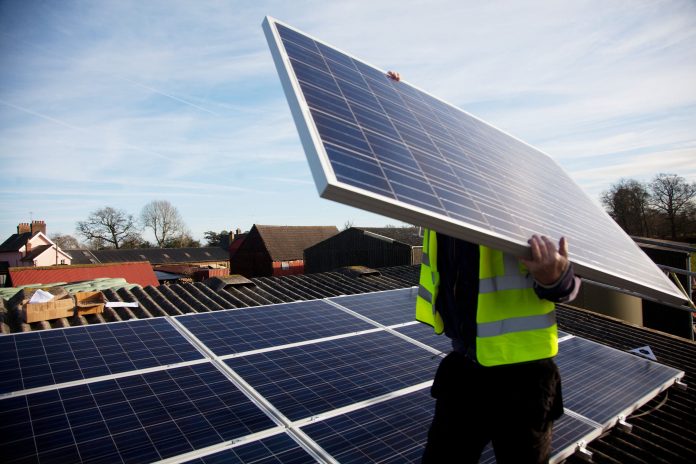Cities are national hubs of community and economic activity – but they are also center of energy consumption and pollution. Throughout the world, they have been the epicenter for development, innovations, offering growth opportunities for people from all walks of life. According to the U.N urbanization prospects 2018 report, 55% of the world’s population lives in urban areas, which is expected to increase to 68% by 2050. Developing countries are undergoing rapid change from rural to urban-based economies as they are transformed by their urbanizing populations. Besides, cities around the world notoriously consume two-thirds of the world’s energy, generating and polluting the world with 70% of the global greenhouse gases, therefore, reducing green gas emissions in cities have to be considered along with solving the energy crisis. To tackle this situation, urban cities need to shift their focus towards renewable energy solutions.
As the world continues to urbanize, a solarized city has the potential of providing power for all. For this, the Indian government initiated the ‘Smart City Mission’ in 2015 defined as an ‘urban renewal and retrofitting program’ with the mission to develop 100 smart cities across the country, making them citizen-friendly and sustainable. By encouraging a strong solar industry, cities can lead the way in reducing greenhouse gas emissions, protecting public health, growing a strong new sector of the economy, and helping residents to reduce the cost of powering their homes.
The benefit of harnessing solar power as an energy resource, compared to biomass, hydropower, is that it requires no water and therefore eliminates environmental concerns regarding increasing water consumption and subsequent shortages. Moreover, with the installation of Solar panels, the utility bills would drastically reduce , and while freeing us from the veil of pollution. Let us have a look at some of the key benefits of solar energy in creating sustainable cities.
- Reduces climate-altering pollution: solar power acts as an alternative to fossil fuels due to being non-polluting, clean energy that helps in decreasing carbon pollution and reducing the risk of damage to the environment.
- Reduces utility bills: Solar energy can be used for activities such as warming homes, water heating, and usage of other appliances, thus reducing the cost of electricity.
- Reduced energy losses: Many cities depend on electricity transmitted from hundreds of miles away to meet local needs, while solar power usually produces the most electricity on sunny days when demand for power is at its highest, thus minimizing power outage as well.
- Remote access: Sun acts as a catalyst for generating solar energy, thus it can be installed in remote areas where power lines are difficult to place, hence making it a viable option for all. This also helps is promote rural electrification, means of running pumps for irrigation and other purposes.
As a developing nation, we have identified that the actual economic growth lies in renewable energy. Cities can reap the benefits of clean, solar energy by adopting pro-solar policies and taking actions that will encourage innovation and investment in the solar industry by adopting environment-friendly measures which will also ensure that they become economically strong, financially viable and from an environmental perspective, ‘sustainable’ – not just for today but also for the future.










